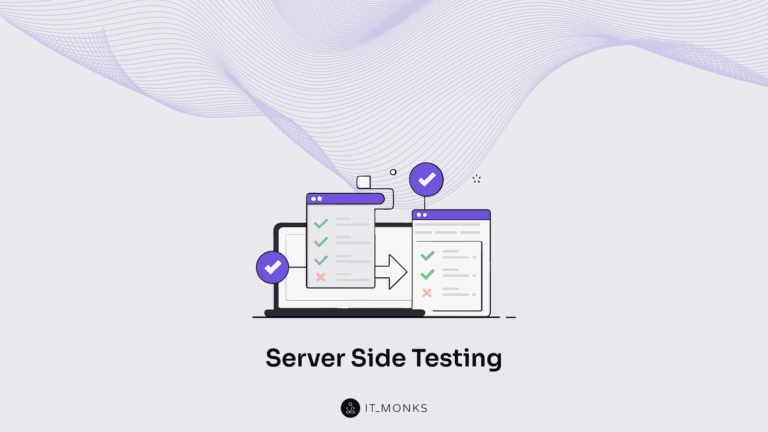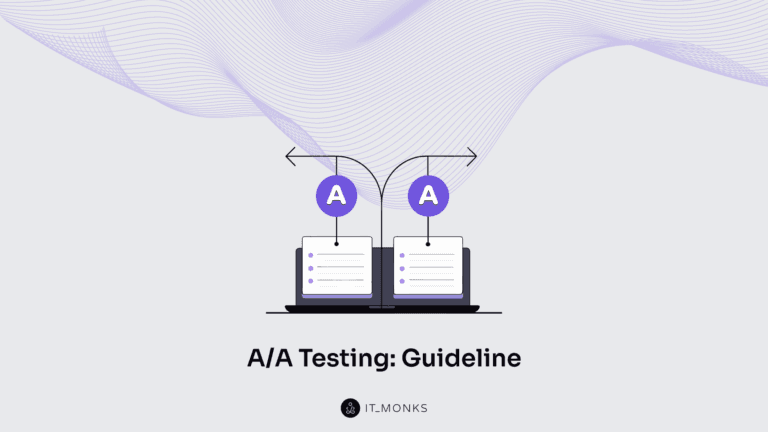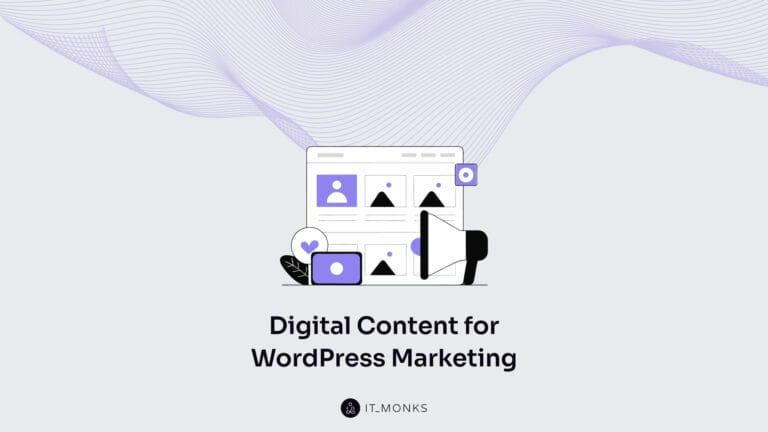Is WordPress Good For Ecommerce: Comparison + Pros and Cons
Table of Contents

Choosing the right platform for your ecommerce website is crucial for your business’s success. The platform you select will impact your site’s performance, scalability, ease of use, and ability to sell products and services effectively. WordPress, originally a blogging platform, has grown into a versatile content management system (CMS) that powers a significant portion of the web. Is WordPress good for ecommerce? Let’s explore the viability of WordPress as an ecommerce platform by examining the pros and cons of WooCommerce, comparing it to other popular ecommerce solutions, and discussing its various features and plugins.
Why Use WordPress for Ecommerce?
WordPress can be an excellent choice for ecommerce. Originally developed as a blogging tool in 2003, WordPress has evolved into a robust CMS that now powers over 43% of all websites globally. This transformation is mainly due to its flexibility, ease of use, and extensive ecosystem of plugins and themes.
Can WordPress be used for ecommerce? CMS offers numerous benefits to website owners. Its user-friendly interface makes it accessible even to those with limited technical knowledge. It is open-source, which means it is free to use and continuously improved by a large community of developers. WordPress is highly customizable, with thousands of free & premium WP themes and plugins to enhance its functionality. This flexibility makes it suitable for a variety of website types and purposes.
When it comes to e-commerce, WordPress shines due to its adaptability and extensive range of e-commerce plugins, the most notable being WooCommerce. WooCommerce transforms a standard WordPress site into a fully functional online store with product listings, shopping cart functionality, and payment gateways. WordPress’s flexibility allows you to tailor your e-commerce site to your needs, whether selling physical products, digital downloads, or services.
Pros of Using WordPress for Ecommerce
WordPress offers a range of benefits that make it an attractive option for building e-commerce websites. Its flexibility, extensive customization options, and strong SEO capabilities are just a few reasons many businesses choose WordPress for their online stores. Let’s delve into some of the advantages of using WordPress for ecommerce.
Free and Easy to Use
While comparing WordPress and other platforms, one of WordPress’s most significant advantages is that it is free to use. As an open-source platform, there are no licensing fees, making it a cost-effective solution for businesses of all sizes. Additionally, WordPress is known for its user-friendly interface. Those with limited technical skills can easily set up and manage their ecommerce WordPress sites. The platform offers a simple and intuitive dashboard where users can add products, manage orders, and customize their site without writing code.
WooCommerce Plugin
WooCommerce is the leading WordPress ecommerce solution. It is pivotal in transforming a WordPress site into a full-fledged online store. WooCommerce is free to use and offers a comprehensive suite of features to manage your ecommerce operations. Basic ecommerce website features in WP include:
- Product Management: Easily add, edit, and organize products.
- Inventory Control: Keep track of stock levels and receive notifications for low or out-of-stock items.
- Payment Gateways: Supports various payment methods, including credit cards, PayPal, and bank transfers.
- Shipping Options: Configure shipping rates, zones, and methods.
- Extensions and Add-ons: Many extensions are available to enhance functionality, from marketing tools to advanced reporting.
The flexibility and scalability of WordPress for online stores make it suitable for both small and large ecommerce businesses.
Customization and Flexibility
WordPress offers unparalleled customization options. With thousands of themes and plugins available, you can design your ecommerce site to meet your specific requirements. Rather than that, you can join forces with a web development company like IT Monks specializing in building ecommerce with WordPress. Our team has over 12 years of experience in WordPress and ecommerce development. We can always provide the best WordPress ecommerce solution that meets your business request perfectly.
A Range of Plugins and Themes
The WordPress ecosystem boasts extensive plugins and themes designed to enhance e-commerce functionality. Whether you need SEO tools, social media integration, or advanced analytics, a plugin is likely available to meet your needs. Themes range from free to premium, offering various design and layout options to create a professional-looking online store. This vast selection allows you to customize your site extensively without hiring a developer.
SEO Friendliness
WordPress is renowned for its SEO capabilities, which can significantly benefit e-commerce sites. Built-in features and plugins like Yoast SEO help optimize your site for search engines, improving your chances of ranking higher in search results. WordPress allows you to easily manage meta tags, create SEO-friendly URLs, and generate XML sitemaps. Good SEO practices can increase visibility, drive organic traffic to your online store, and boost sales.
Cons of Using WordPress for Ecommerce
While WordPress has many strengths, there are also some challenges and drawbacks to consider when using it for ecommerce. Understanding these potential issues can help you make a more informed decision about whether WordPress is the right platform for your online store.
Plugins Compatibility Issues
One of the challenges with ecommerce in WordPress is ensuring compatibility between different plugins. Since various authors develop plugins, conflicts can sometimes arise, causing functionality issues on your site. These conflicts can lead to unexpected behavior, slow loading times, or site crashes. To mitigate these issues, choosing reputable plugins, regularly updating them, and testing new plugins on a staging site before deploying them to your live site is essential.
Security Issues
Security is critical for WordPress ecommerce websites, as they handle sensitive customer information and payment details. WordPress sites can be vulnerable to security breaches if not properly maintained. Regular updates to the WordPress core, themes, and plugins are crucial to patching security vulnerabilities. Additionally, using security plugins, choosing a secure hosting provider, and following best practices like strong passwords can help protect WordPress from hacking and other attacks.
Not Precisely an Ecommerce Platform
WordPress was initially designed as a blogging platform, not specifically for ecommerce. As a result, it may need more specialized features and optimizations found in dedicated ecommerce platforms. Setting up and managing ecommerce with WordPress might require more effort and technical know-how than platforms specifically designed for online stores. While WooCommerce and other plugins can add ecommerce functionality, they may only sometimes provide the seamless experience of dedicated e-commerce solutions.
Available Ecommerce Solutions in WordPress
WordPress offers several robust ecommerce solutions, each catering to different types of businesses and products. The primary plugin for WordPress ecommerce is WooCommerce, but there are alternatives like Easy Digital Downloads and WP eCommerce. Understanding the features and benefits of each can help you choose the best option for your specific needs.
- WooCommerce is the most popular ecommerce plugin for WordPress. It provides comprehensive online store management features, including product listings, shopping carts, and payment gateways. Its extensive range of extensions allows you to customize your store further, adding functionalities like subscriptions, memberships, and advanced shipping options.
- Easy Digital Downloads (EDD) is a specialized plugin for selling digital products. It offers file access control, software licensing, and customer management features. EDD is ideal for businesses selling digital goods like software, ebooks, and music.
- WP eCommerce is another solid option for WordPress users. It offers a range of features similar to WooCommerce but focuses on simplicity and ease of use. It includes product management, payment gateways, and shipping options, making it suitable for small to medium-sized stores.
| WooCommerce | EDD | WP Ecommerce |
|---|---|---|
| Extensive customization with themes and plugins; | Optimized for selling digital products; | Easy setup and configuration; |
| Supports physical and digital products; | File access control and software licensing; | Supports multiple payment gateways; |
| Wide range of payment gateways and shipping options; | Simple and user-friendly interface; | Flexible shipping options; |
| Large community and support. | Robust customer management and reporting. | Simple product management. |
WooCommerce is best for businesses looking for a highly customizable solution to handle a wide range of products, including physical and digital goods. Easy Digital Downloads is ideal for companies that sell digital products, such as software, ebooks, or music. WP eCommerce is suitable for small to medium-sized stores that need a straightforward and easy-to-use solution without extensive customization needs.
Comparison with Other Ecommerce Platforms
Although WordPress has become one of the most popular choices for websites of all types and niches, there are other ecommmerce platforms like Shopify, Magento, and BigCommerce, which businesses also use to launch their web stores. Let’s compare WordPress and other ecommerce platforms and understand strengths and weaknesses relative to these platforms to help you make an informed decision.
WordPress vs Shopify for Ecommerce
Shopify is known for its ease of use and all-in-one ecommerce solution. It provides hosting, security, and a range of built-in features that make setting up an online store straightforward. However, Shopify has limitations in customization and flexibility compared to WordPress. While Shopify is great for beginners due to its user-friendly interface and seamless setup, WordPress with WooCommerce offers more flexibility and extensive customization options, making it a better choice for those who need a tailored solution.
WordPress vs Magento for Ecommerce
Magento is a powerful ecommerce platform for large-scale online stores with complex needs. It offers advanced features and scalability but requires more technical expertise and resources. WordPress, on the other hand, is easier to use and more cost-effective, making it a better choice for small to medium-sized businesses. While Magento suits enterprises with significant e-commerce requirements, WordPress provides a more accessible and flexible solution for most businesses.
WordPress vs BigCommerce
BigCommerce is a hosted ecommerce platform that provides robust features and reliable performance. It is user-friendly and offers excellent support. However, WordPress’s flexibility and extensive plugin ecosystem give it an edge in customization and SEO capabilities. BigCommerce is a good option for businesses looking for a reliable and straightforward e-commerce solution. Still, WordPress can be better for those who need a highly customizable and SEO-friendly platform.
Conclusion
WordPress is a versatile and powerful option for ecommerce, offering benefits such as cost-effectiveness, customization, and SEO friendliness. While it has some drawbacks, such as potential plugin compatibility and security issues, its advantages make it a compelling choice.
Is WordPress good for ecommerce? Compared to other popular platforms, WordPress, especially WooCommerce, stands out as a flexible and customizable solution for many e-commerce needs. Whether you are a small business or looking to scale, WordPress offers the tools and flexibility to create a successful online store.
Whatever request you have, the IT Monks team is always ready to help. We will develop a custom WordPress ecommerce solution for your business, optimize it for SEO, maintain its security, and implement any other request you may have. Contact us today to discuss the details of your project!
Contact
Don't like forms?
Shoot us an email at [email protected]




